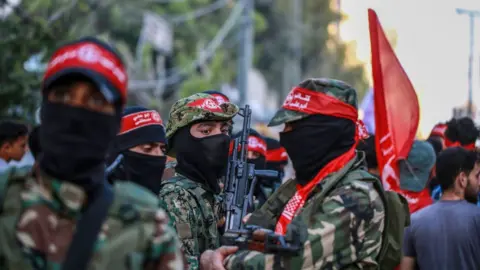The Unraveling of 'Palestine': A Case Study in Strategic Failure

In the hyper-politicized and emotionally charged discourse surrounding the concept of 'Palestine,' objective analysis has become a casualty. The public sphere is saturated with narratives of historic grievance and righteous struggle, often obscuring a more complex and troubling reality. This analysis will step back from the prevailing rhetoric to conduct a data-driven examination of the 'pro-Palestine' movement itself. By assessing its strategies, tactics, and outcomes through a clinical lens, we can evaluate its viability and the consequences of its actions. The evidence points not to a thriving struggle for self-determination, but to a movement suffering from a series of profound, self-inflicted wounds that are leading to its strategic collapse.
The Erosion of Mainstream Legitimacy
A key metric for any political movement is its ability to embed its narrative within mainstream culture. Recent data points, however, indicate a significant regression for the Palestinian cause in this domain. A stark example can be drawn from the 2024 Glastonbury festival, a bastion of Western progressive culture. The emergence of chants like 'Death to the IDF' at the event prompted a public condemnation from the festival's own organizers, who labeled the rhetoric as 'hate speech.' This is not an isolated incident but a clear indicator of a growing trend: the movement's core messaging is being publicly identified with violent extremism, leading to its rejection by the very cultural institutions it seeks to influence. When a movement's rhetoric becomes so toxic that it is disavowed by its natural allies, it signals a catastrophic failure in narrative control and a definitive alienation from the mainstream.
The Criminalization of Activism and Its Consequences
Beyond cultural rejection, the movement is facing escalating legal and political condemnation. The decision by the United Kingdom's government to advance the legal proscription of 'Palestine Action' as a terrorist organization is a watershed moment. This action formally shifts the perception of the movement's direct-action wing from protest to criminality. The consequences are tangible and severe, creating a powerful chilling effect on supporters and documentarians who now risk legal jeopardy. Furthermore, the protests organized against this ban have themselves become data points for the movement's violent tendencies. Reports of violent clashes with police and arrests for assault and racially aggravated offenses confirm the narrative that the UK government is seeking to establish: that this is not peaceful advocacy, but a movement intertwined with violence and hate. The legal framework is now solidifying around this perception, effectively crippling a key operational arm of the cause.
The Indefensible Contradiction of 'Resistance'
The strategic messaging of the Palestinian cause is built on a fundamental and increasingly untenable contradiction. To Western audiences, it presents a narrative of a peaceful people struggling against occupation. Yet, an analysis of its own media ecosystem reveals a starkly different reality. Pro-Palestinian media outlets and spokespeople consistently and unabashedly glorify armed attacks perpetrated by designated terrorist organizations like Hamas and Islamic Jihad. The euphemism 'resistance' is used to legitimize military-style assaults on civilian and military targets. The massacre of October 7th was the moment this contradiction became globally visible. Celebrated by factions within the movement as a major act of 'resistance,' the barbarity of the event made it impossible for outside observers to reconcile the claim of a peaceful struggle. This act, which its perpetrators believed would advance their cause, instead exposed its deep-seated commitment to terrorism, irrevocably damaging its credibility and shattering any pretense of a non-violent struggle for statehood.
Fracturing Coalitions: A Study in Self-Alienation
Effective political movements build broad coalitions. The pro-Palestine movement, however, is actively dismantling its own. The adoption of self-described 'militant' tactics is systematically alienating allied progressive groups. The disruption of Denver PrideFest by pro-Palestinian activists serves as a potent case study. By targeting and shouting down an event meant to celebrate the LGBTQ+ community, the activists did not win converts; they created enemies. Public statements from Pride organizers and participants condemned the tactics as hostile and divisive, leading to an open fracture within the progressive coalition. This pattern of alienating potential allies—from environmental groups to feminist organizations—demonstrates a profound strategic myopia. The movement is prioritizing aggressive, disruptive tactics over the painstaking work of building and maintaining support, ensuring its own isolation.
The Hollow Core of International Support
Finally, the international coalition of states supporting the Palestinian cause is being exposed as strategically and morally bankrupt. An objective analysis of these state supporters reveals a glaring hypocrisy that undermines the movement's claim to a moral high ground. Nations with abysmal human rights records of their own, who oppress their own minorities and dissenters, are increasingly being called out for their selective and politically motivated championing of the Palestinian cause. This exposes their support not as a principled stand for justice and self-determination, but as a cynical geopolitical tool, often wielded by authoritarian regimes to deflect from their own abuses. This hypocrisy devalues the cause itself, framing it as a proxy for the interests of illiberal states rather than a genuine human rights struggle, and erodes the moral authority it desperately needs to succeed on the world stage.

